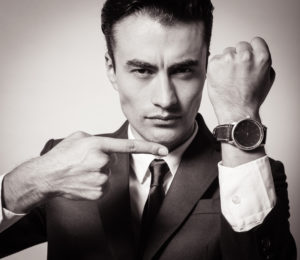 At networking and other professional events, you may think you’re putting your best foot forward by wearing your most expensive jewelry or watch, designer duds, or by carrying a high-end handbag. But that can backfire, according to a recent study by Stephen Garcia, Ph.D., associate professor of psychology at the University of Michigan, which was cited in The Atlantic. In other words, you’ll end up actually repelling instead or attracting new friends.
At networking and other professional events, you may think you’re putting your best foot forward by wearing your most expensive jewelry or watch, designer duds, or by carrying a high-end handbag. But that can backfire, according to a recent study by Stephen Garcia, Ph.D., associate professor of psychology at the University of Michigan, which was cited in The Atlantic. In other words, you’ll end up actually repelling instead or attracting new friends.
More than a century ago, economist Thorstein Veblen coined the phrase “conspicuous consumption,” which asserted that people buy expensive and unnecessary items in order to show them off and gain status. And while some research has found that purchasing luxury items may temporarily increase your self-esteem, Garcia’s study demonstrates that displaying them makes you less likely to impress others.
Garcia and his co-authors created a number of hypothetical scenarios and asked subjects what they would choose to do in two different roles — as someone seeking to make friends or as someone evaluating potential friends. According to the article, Garcia found an “imbalance” in how the friend evaluators perceive the friend seekers.
“People think … that status is going to attract new friends,” Garcia told The Atlantic. “However, it actually has the opposite effect — that is, people would rather befriend, in a conversation or in an interaction, someone who doesn’t display [high-] status, but rather more neutral markers.”
Meaning that you stand to make more friends wearing a Swatch than a Rolex.




